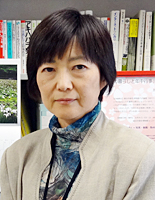World Open Data Day, why not visit Masako Nakamura (Professor of Tokyo City University)

Open data is defined as data that is ”subject to rules that allow for secondary use, whether for profit or non-commercial purposes,” is ”suitable for machine reading,” and is ”available for free” (According to the Digital Agency’s Open Data Basic Guidelines) .
Its significance includes resolving various issues through citizen participation and public-private collaboration, revitalizing the economy, increasing the sophistication and efficiency of government, and improving transparency and trust.
The conversion of national and public data to open data is progressing in countries around the world, and in many ways this is revitalizing business and civic activities.
In Japan, ”Basic Act on the Promotion of Public-Private Data Utilization” mandates national and local governments to take action. Currently, it is said that in addition to making information public, efforts should be made to put more effort into its utilization, as well as to improve the quality of the data and publish it in a data format that is highly machine-readable.
On the other hand, national surveys show that many local governments still face challenges in their efforts and promotion.
”Lack of human resources” and ”effects/benefits/needs are unclear” continue to exceed 50%, and more than a quarter of local governments also say ”utilization is not progressing” and ”they do not have knowledgeable staff”. ”I don’t know what to do about it” (2021 survey, multiple answers allowed).
In addition to a collection of success stories, the Digital Agency provides support such as providing training texts and dispatching open data evangelists, but local governments are still struggling.
By the way, in Japan, open data has a strong image of being released by the national and local governments, but open data movements such as Wikipedia Town and “hackathons” that utilize open data are active around the world. Yes, there are many cases in Japan.
Local governments that are leading the way in open data initiatives often collaborate with external organizations (citizens and businesses, especially local civic tech groups). Abundant opportunities for public-private exchanges seem to be the key to promoting open data.
In this sense, for example, ”Start-up in Residence (STiR)” program started in the city of San Francisco in the United States can serve as a reference.
This program solicits ideas from citizens to solve the city’s problems, and over 16 weeks, with the participation of government officials and advice from experts, ideas are put into form and presented at a presentation. Results can lead to city contracts, venture capital investment, and acquisitions by large corporations.
Compared to Europe and the United States, one of Japan’s major challenges is the lack of public financial support for such public-private collaboration initiatives and bottom-up citizen initiatives.
This year, World Open Data Day will be held from March 2nd to March 8th, in which citizen groups from around the world call for the use of open data.
Events are being planned all over Japan. If you are interested in utilizing open data, why not come and experience the bottom-up excitement this weekend?
